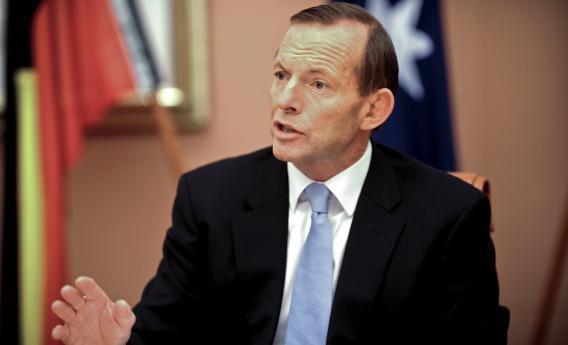Under Australia’s new conservative government, there is a minister for sport (naturally)—but no longer a minister for science.
Americans might not think of a minister for science as a crucial role. But not since 1931 has an Australian government been without one. While the rest of the world goes mad for STEM skills, new Prime Minister Tony Abbott has split up the role under the minister for industry and the minister for education. Abbott says the move comes as part of an attempt to limit ministerial “title inflation.” But there is also heavy blood-letting among the Aussie government bodies that worked on addressing climate change science and policy under the previous Labor government. With Abbott, 33 climate change programs run by seven departments and eight agencies will be collapsed and run by just two departments. The Climate Change Authority, the Climate Commission, and the Clean Energy Finance Corp. will all be scrapped. While this move will save the government tens of millions, it doesn’t seem like the new Liberal party government has plans to replace them with anything more effective.
Given innovation in science and technology is integral to a nation’s economic future, you’d imagine that Australia—where I grew up—would benefit, even symbolically, from a minister focused on assisting and funding that industry. In a further indication of their paternalistic attitude toward research endeavors, the incoming government also vowed to strictly oversee and cut the fat from all grants given by the Australian Research Council.
Even a member of Abbott’s own party, Dennis Jensen (an admitted climate change-skeptic who put himself forward for the axed role), has criticized the new government’s decision to omit the position, telling the Sydney Morning Herald, “I guess this is a problem with not having people of scientific bent in decision-making processes.” I suppose we should thank him for that bit of irony.
And for all the talk about streamlining ministries, the sad fate of the science minster in Australia really cannot be divorced from the issue of climate change.
In a nation that survived the financial crisis largely by taking polluting things like coal and iron ore out of the ground and selling them to China, the discussion of climate change in Australia has become increasingly political and less about the science.
Ian Macfarlane, the newly appointed minister for industry who will have most say over how science research money is spent, has been less than unequivocal about his belief in climate change. In private, he is rumored to be an outright skeptic. Clive Hamilton, an Australian author and academic, has called Macfarlane a “greenhouse troglodyte” and accused him of a member of the “dirty dozen”— a group of politicians, mining industry lobbyists, and journalists who had been instrumental in undermining effective action on climate change in Australia.
There doesn’t seem to be much in the way of silver lining for Australian scientists. As the Guardian wrote, “Australia’s prime minister elect Tony Abbott has just taken the climate change ball and locked it in a cupboard at the back of the official residence. And in the same cupboard, there’s a fancy-looking box with the word ‘science’ written on it.”
Without a science minister and with a disproportionally science-skeptic government, Australia will be taking a back seat in the fight against climate change. Or rather, a knuckle-dragging, mouth-breathing, polluting-industry-flavored approach to the world’s imminent crisis—and as China’s demand for raw materials lessens, doing damage to its own innovation economy in the process.
